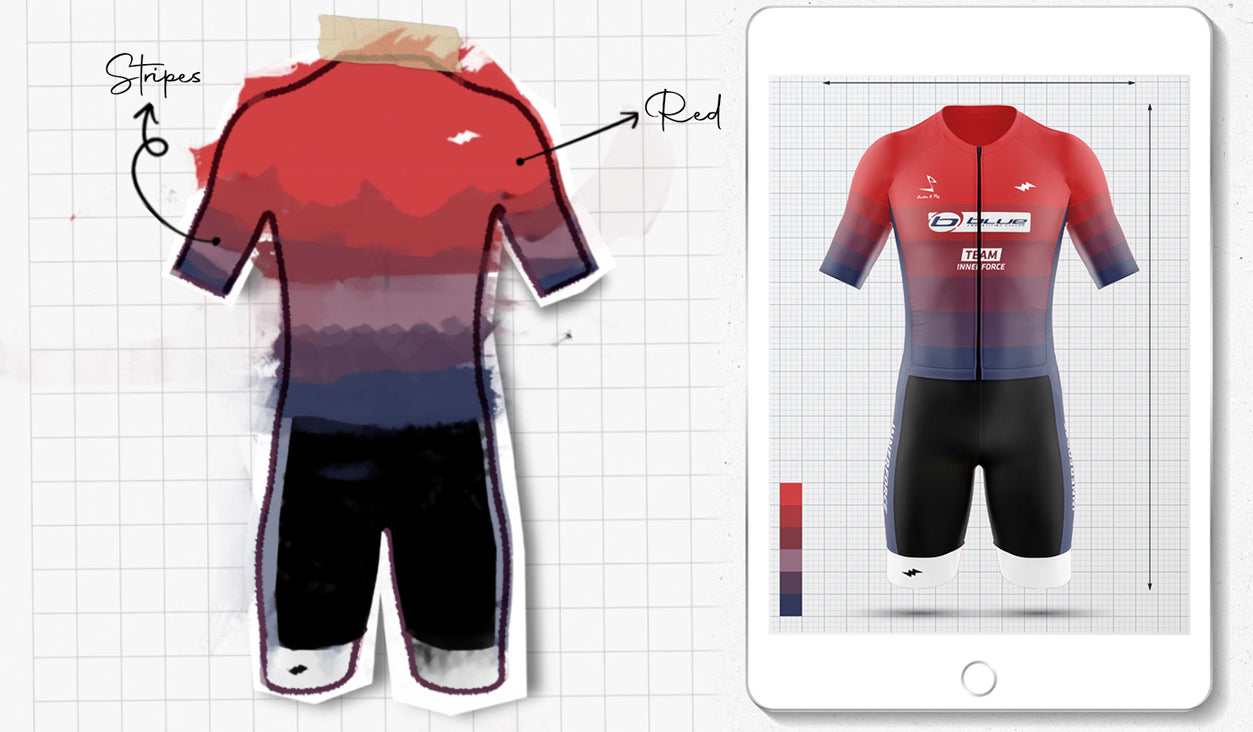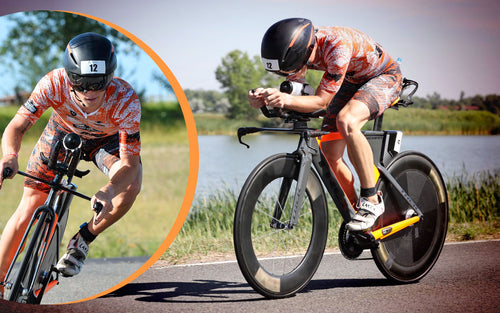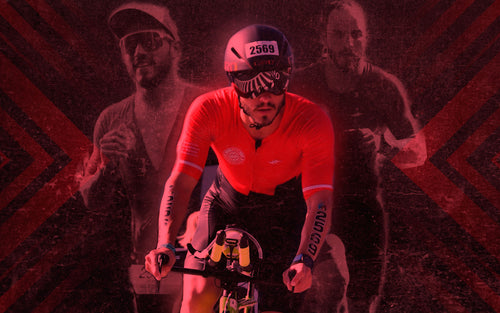Mixing the Holidays and Training

Intro
If you’re anything like me, then it takes something short of a natural disaster to keep you from completing every workout on your training plan and the holidays are no different. Even the thought of missing a session makes you feel like you won’t hit your weekly goal or that you won’t get all of the performance gains out of your plan. Not only that, but you also try to maintain some crazy diet through all of the holiday food and goodies (potato casserole, cookies, pies, and every other dessert that makes its way onto your holiday table). Sound like you? Don’t worry, you’re not alone. I was there once, and I know way too many athletes that are also not aware of the importance of quality recovery between/during training plans or blocks. Here is how I advise my athletes on how to properly mix the holidays and their current training plans.

Recovery
Now, I know that with the race season coming to a close and athletes trying to shift into offseason mode, many of you might be feeling super motivated and ready to dive into some hardcore training blocks to get even better for next year but remember that (depending on your race schedule for the upcoming year) you should have anywhere between 12 and 24 weeks before your next race. That is plenty of time to make the performance gains that you want and still get some quality recovery before the start of another physiologically demanding race season. Just because you aren’t racing every other weekend doesn’t mean that you have to kill yourself with training. You have to remember that along with an increase in training frequency and intensity (common in offseason training) comes a greater need for quality recovery and proper nutrition. Training at very high intensities and heavy volumes coupled with insufficient recovery/nutrition can lead to overtraining and even Overtraining Syndrome (OTS). That being said, I know it can be difficult for some athletes to get enough quality recovery time (e.g. time off feet and sleep) during the offseason especially with kids and busy work schedules. There is good news though. The holidays provide an excellent opportunity for athletes to get some quality recovery time without having to worry about the normal everyday routine.
When the holiday activities start and you’re looking at your training plan for the week and thinking “I have no idea how I’m going to survive this with all of the cooking, cleaning, family, etc.” this is a perfect time to add some extra recovery to your plan. Not only are you having to try to squeeze your training into a small window of time, but the holidays can also be stressful on your body both mentally and physiologically. This holiday stress can add to your overall training stress and actually increase the time needed to properly recover between workouts. When you feel yourself trying to force time for workouts, you should probably take that as a hint to take a little more time off. I know that this can sometimes feel like “giving in” or being “weak” but you will thank yourself in the long run (pun intended). Especially if you’re one of those people that has to be forced to plan recovery time. This time off will help to prevent overtraining and overreaching and allow your muscles and bones to heal after a long race season and even in between training weeks. It’s also important to remember that training reversibility (the process of your body losing its performance gains when subjected to prolonged periods of inactivity) doesn’t take place until anywhere from 10-20 days after your last workout and in some cases even longer. So, when you get the feeling that it’s going to take a miracle to fit your training into your holiday plans or that you would have to sacrifice time with your loved ones in order to squeeze in a run, think about taking that time to recover. The holidays don’t last forever and there will be plenty of time for all the swims, rides, and runs after or even in between the holidays.

Nutrition
Okay. Nutrition time. There are always those people that are dieting through the holidays that have you thinking “there’s no way I’d be able to keep up a diet with all of this delicious food” and you’re absolutely right. We’re athletes. And most of us are either long or ultra-distance athletes that are constantly burning fat and calories. Meaning we need to consume almost everything we can get our hands on to replenish what we lose during exercise…within reason of course. That being said, we are not the kind of people that should be dieting through the holidays. In order to promote musculoskeletal health including bone growth and muscle hypertrophy, an athlete needs to be consuming adequate amounts of fats, proteins, and carbohydrates. Luckily, there are plenty of each of those on the holiday table. Even more importantly, though, are the repercussions of an athlete not giving his/her body adequate nutrients which prevents the musculoskeletal system from functioning properly. These repercussions could increase an athlete’s risk of injury due to weaker bones and overuse of muscles and also increase the risk of illness (which is already high during the winter months). In short, don’t be afraid to eat the foods you love over the holidays. Especially the turkey, ham, potatoes, vegetables, and casseroles. For us athletes, proper nutrition is everything and if that means eating a little bit of everything (even a slice of pie…or two) this holiday season then go for it! I hope this helps you in all your holiday training, recovery, and nutrition decisions. Happy Holidays!


Intro
If you’re anything like me, then it takes something short of a natural disaster to keep you from completing every workout on your training plan and the holidays are no different. Even the thought of missing a session makes you feel like you won’t hit your weekly goal or that you won’t get all of the performance gains out of your plan. Not only that, but you also try to maintain some crazy diet through all of the holiday food and goodies (potato casserole, cookies, pies, and every other dessert that makes its way onto your holiday table). Sound like you? Don’t worry, you’re not alone. I was there once, and I know way too many athletes that are also not aware of the importance of quality recovery between/during training plans or blocks. Here is how I advise my athletes on how to properly mix the holidays and their current training plans.

Recovery
Now, I know that with the race season coming to a close and athletes trying to shift into offseason mode, many of you might be feeling super motivated and ready to dive into some hardcore training blocks to get even better for next year but remember that (depending on your race schedule for the upcoming year) you should have anywhere between 12 and 24 weeks before your next race. That is plenty of time to make the performance gains that you want and still get some quality recovery before the start of another physiologically demanding race season. Just because you aren’t racing every other weekend doesn’t mean that you have to kill yourself with training. You have to remember that along with an increase in training frequency and intensity (common in offseason training) comes a greater need for quality recovery and proper nutrition. Training at very high intensities and heavy volumes coupled with insufficient recovery/nutrition can lead to overtraining and even Overtraining Syndrome (OTS). That being said, I know it can be difficult for some athletes to get enough quality recovery time (e.g. time off feet and sleep) during the offseason especially with kids and busy work schedules. There is good news though. The holidays provide an excellent opportunity for athletes to get some quality recovery time without having to worry about the normal everyday routine.
When the holiday activities start and you’re looking at your training plan for the week and thinking “I have no idea how I’m going to survive this with all of the cooking, cleaning, family, etc.” this is a perfect time to add some extra recovery to your plan. Not only are you having to try to squeeze your training into a small window of time, but the holidays can also be stressful on your body both mentally and physiologically. This holiday stress can add to your overall training stress and actually increase the time needed to properly recover between workouts. When you feel yourself trying to force time for workouts, you should probably take that as a hint to take a little more time off. I know that this can sometimes feel like “giving in” or being “weak” but you will thank yourself in the long run (pun intended). Especially if you’re one of those people that has to be forced to plan recovery time. This time off will help to prevent overtraining and overreaching and allow your muscles and bones to heal after a long race season and even in between training weeks. It’s also important to remember that training reversibility (the process of your body losing its performance gains when subjected to prolonged periods of inactivity) doesn’t take place until anywhere from 10-20 days after your last workout and in some cases even longer. So, when you get the feeling that it’s going to take a miracle to fit your training into your holiday plans or that you would have to sacrifice time with your loved ones in order to squeeze in a run, think about taking that time to recover. The holidays don’t last forever and there will be plenty of time for all the swims, rides, and runs after or even in between the holidays.

Nutrition
Okay. Nutrition time. There are always those people that are dieting through the holidays that have you thinking “there’s no way I’d be able to keep up a diet with all of this delicious food” and you’re absolutely right. We’re athletes. And most of us are either long or ultra-distance athletes that are constantly burning fat and calories. Meaning we need to consume almost everything we can get our hands on to replenish what we lose during exercise…within reason of course. That being said, we are not the kind of people that should be dieting through the holidays. In order to promote musculoskeletal health including bone growth and muscle hypertrophy, an athlete needs to be consuming adequate amounts of fats, proteins, and carbohydrates. Luckily, there are plenty of each of those on the holiday table. Even more importantly, though, are the repercussions of an athlete not giving his/her body adequate nutrients which prevents the musculoskeletal system from functioning properly. These repercussions could increase an athlete’s risk of injury due to weaker bones and overuse of muscles and also increase the risk of illness (which is already high during the winter months). In short, don’t be afraid to eat the foods you love over the holidays. Especially the turkey, ham, potatoes, vegetables, and casseroles. For us athletes, proper nutrition is everything and if that means eating a little bit of everything (even a slice of pie…or two) this holiday season then go for it! I hope this helps you in all your holiday training, recovery, and nutrition decisions. Happy Holidays!

SEE WHAT CUSTOM APPAREL LOOKS LIKE

GEAR UP
MORE FROM THE BLOG

The Perfect Balance: Crafting a Comprehensive Triathlon Training Plan

The Power of Custom Athletic Apparel: Boost Your Performance and Confidence

Triathlon Training 101: Proven Strategies for Avoiding Injuries




